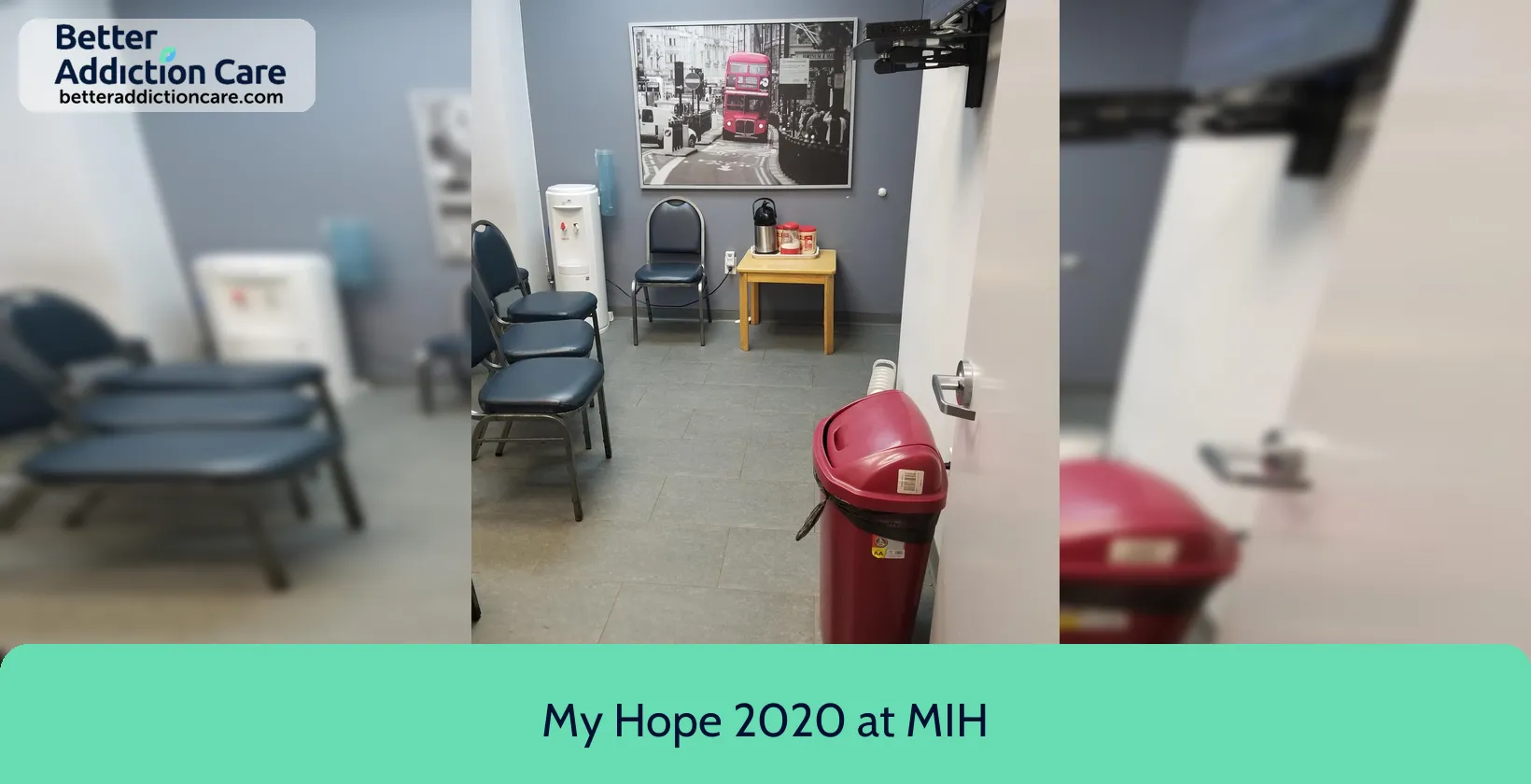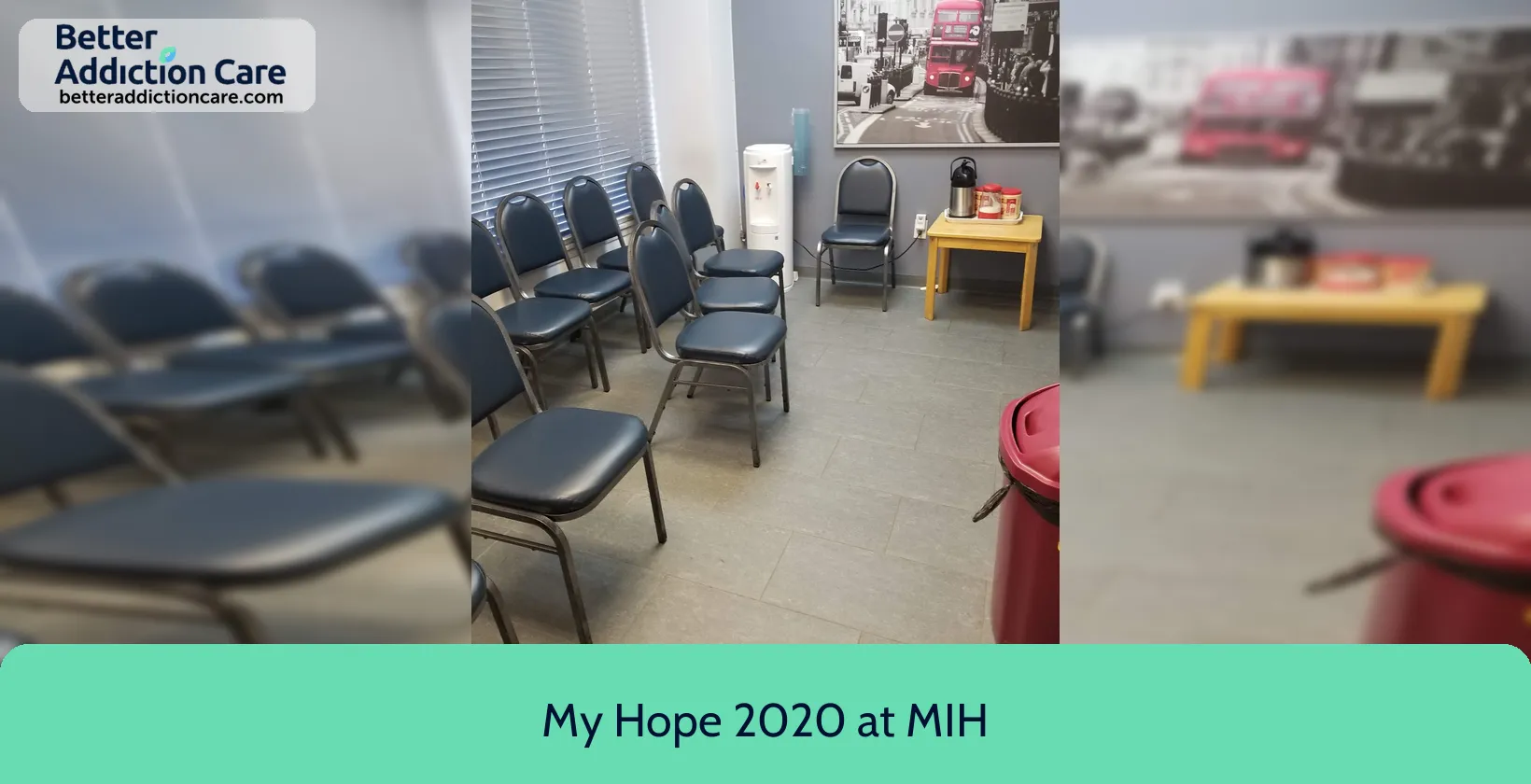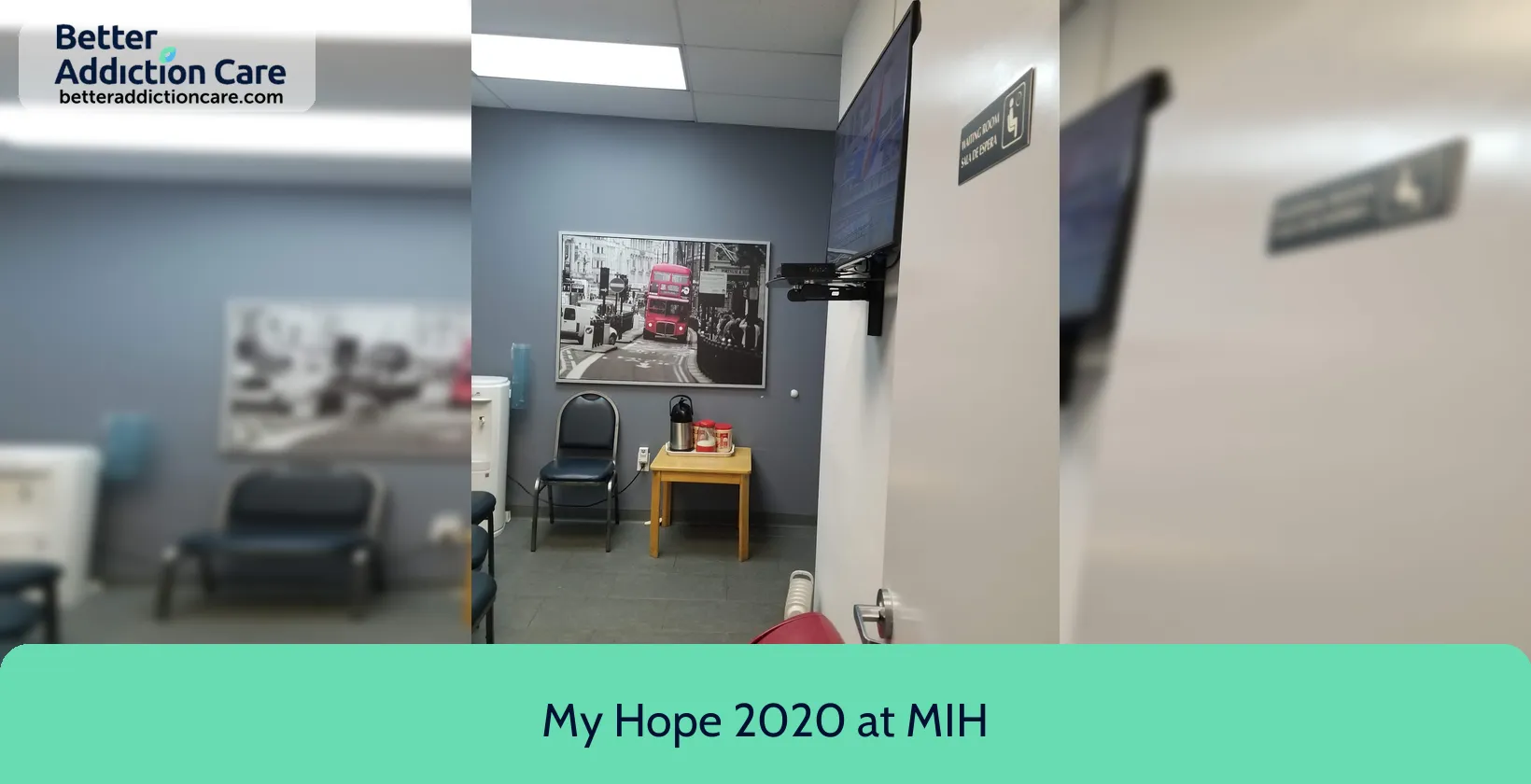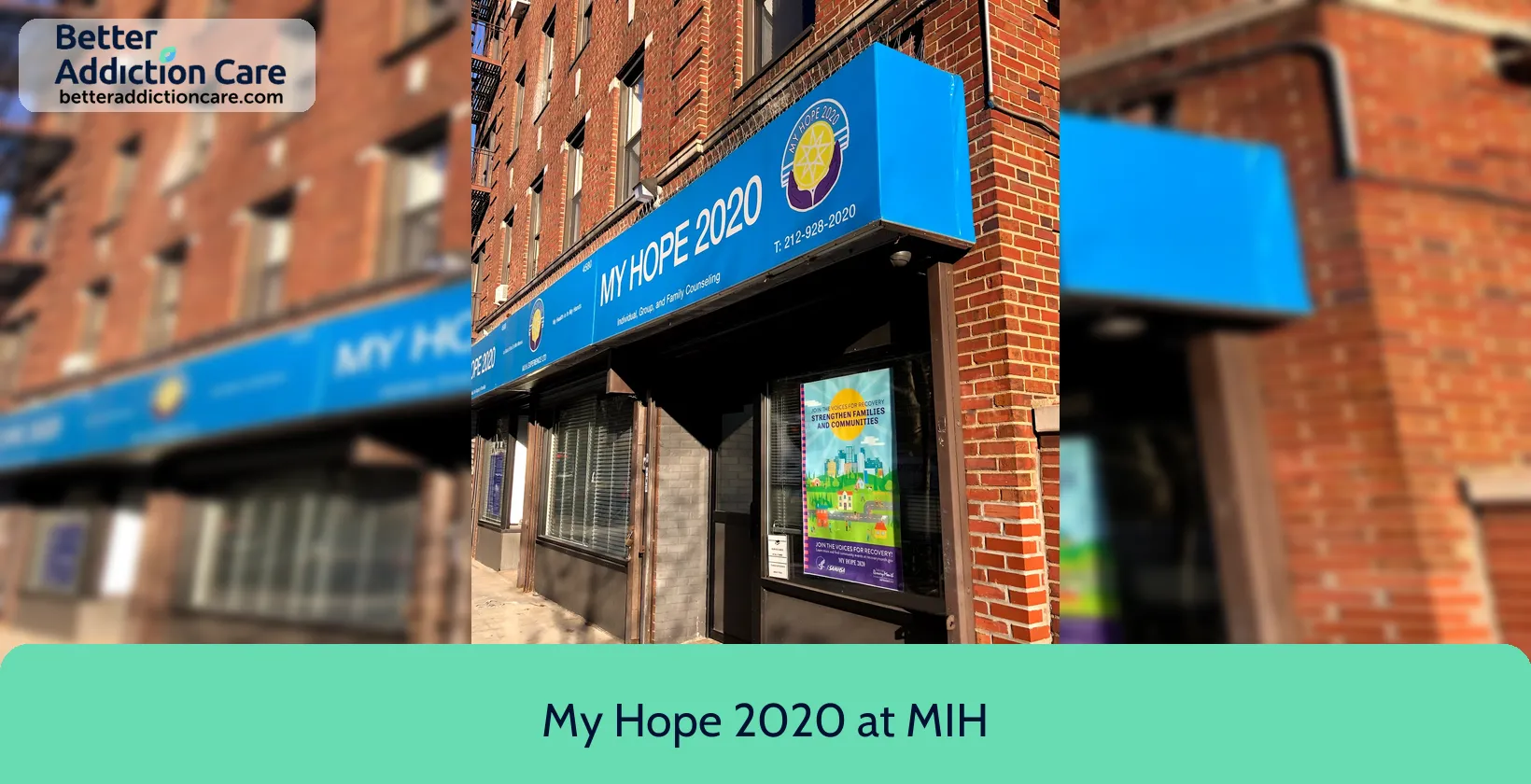My Hope 2020 at MIH Experience
Overview
My Hope 2020 at MIH Experience is an substance abuse treatment center that provides outpatient detoxification, for men and women between 18 and 65+ years of age. As part of their special programs, My Hope 2020 at MIH Experience To help patients achieve sobriety, My Hope 2020 at MIH Experience provides treats alcohol detoxification, benzodiazepines detoxification, and opioids detoxification.. Afterward, patients receive cognitive behavioral therapy, telemedicine/telehealth therapy, and substance use disorder counseling during treatment. My Hope 2020 at MIH Experience is located in New York City, New York, providing treatment for people in New York County, accepting cash or self-payment, medicaid, and medicare.
My Hope 2020 at MIH Experience at a Glance
Payment Options
- Cash or self-payment
- Medicaid
- Medicare
- State-financed health insurance plan other than Medicaid
- Private health insurance
Assessments
- Screening for tobacco use
- Comprehensive mental health assessment
- Comprehensive substance use assessment
- Screening for mental disorders
- Screening for substance use
Age Groups
- Young adults
- Adults
- Seniors
Ancillary Services
- Suicide prevention services
- Specially designed program for DUI/DWI clients
- Mental health services
- Transportation assistance
Highlights About My Hope 2020 at MIH Experience
7.40/10
With an overall rating of 7.40/10, this facility has the following balanced range of services. Drug Rehab and Detox: 8.15/10, Alcohol Rehabilitation: 8.00/10, Treatment Options: 7.46/10, Insurance and Payments: 6.00/10.-
Drug Rehab and Detox 8.15
-
Alcohol Rehabilitation 8.00
-
Treatment Options 7.46
-
Insurance and Payments 6.00
Treatment At My Hope 2020 at MIH Experience
Treatment Conditions
- Mental health treatment
- Substance use treatment
- Co-occurring Disorders
Care Levels
- Outpatient
- Outpatient detoxification
- Outpatient methadone/buprenorphine or naltrexone treatment
- Regular outpatient treatment
- Aftercare
Treatment Modalities
- Cognitive behavioral therapy
- Telemedicine/telehealth therapy
- Substance use disorder counseling
- Group counseling
- Family counseling
Ancillary Services
Languages
- Spanish
Additional Services
- Pharmacotherapies administered during treatment
- Discharge Planning
- Drug or alcohol urine screening
Get Help Now
Common Questions About My Hope 2020 at MIH Experience
Contact Information
Other Facilities in New York City

6.71

7.43

7.54

7.08

7.20

6.65

7.52

7.59
DISCLAIMER: The facility name, logo and brand are the property and registered trademarks of The Bridge, and are being used for identification and informational purposes only. Use of these names, logos and brands shall not imply endorsement. BetterAddictionCare.com is not affiliated with or sponsored by The Bridge.




